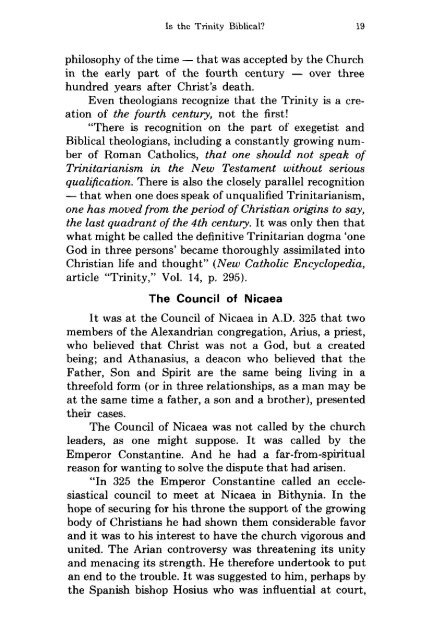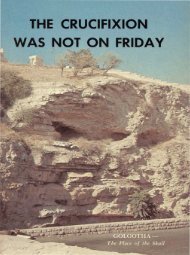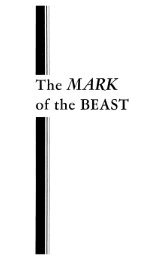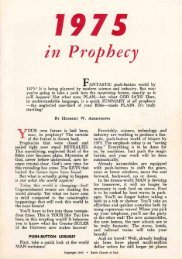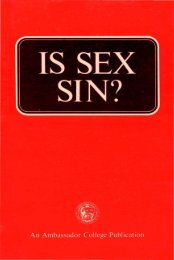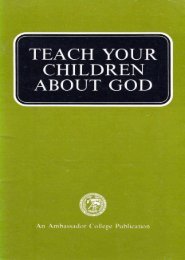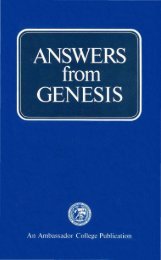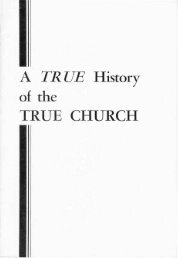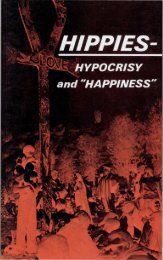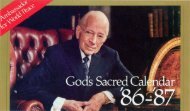Is God A Trinity PDF - Church of God Faithful Flock
Is God A Trinity PDF - Church of God Faithful Flock
Is God A Trinity PDF - Church of God Faithful Flock
You also want an ePaper? Increase the reach of your titles
YUMPU automatically turns print PDFs into web optimized ePapers that Google loves.
<strong>Is</strong> the <strong>Trinity</strong> Bibhcal'? 19philosophy <strong>of</strong> the time- that was accepted by the <strong>Church</strong>in the early part <strong>of</strong> the fourth century - over threehundred years after Christ's death.Even theologians recognize that the <strong>Trinity</strong> is a creation<strong>of</strong> the fourth century, not the first!"There is recognition on the part <strong>of</strong> exegetist andBiblical theologians, including a constantly growing number<strong>of</strong> Roman Catholics, that one should not speak <strong>of</strong>Trinitarianism in the New Testament without seriousqualification. There is also the closely parallel recognition-that when one does speak <strong>of</strong> unqualified Trinitarianism,one has moved from the period <strong>of</strong> Christian origins to say,the last quadrant <strong>of</strong> the 4th century. It was only then thatwhat might be called the definitive Trinitarian dogma 'one<strong>God</strong> in three persons' became thoroughly assimilated intoChristian life and thought" (New Catholic Encyclopedia,article "<strong>Trinity</strong>," Vol. 14, p. 295).The Council <strong>of</strong> NicaeaIt was at the Council <strong>of</strong> Nicaea in A.D. 325 that twomembers <strong>of</strong> the Alexandrian congregation, Arius, a priest,who believed that Christ was not a <strong>God</strong>, but a createdbeing; and Athanasius, a deacon who believed that theFather, Son and Spirit are the same being living in athreefold form (or in three relationships, as a man may beat the same time a father, a son and a brother), presentedtheir cases.The Council <strong>of</strong> Nicaea was not called by the churchleaders, as one might suppose. It was called by theEmperor Constantine. And he had a far-from-spiritualreason for wanting to solve the dispute that had arisen."In 325 the Emperor Constantine called an ecclesiasticalcouncil to meet at Nicaea in Bithynia. In thehope <strong>of</strong> securing for his throne the support <strong>of</strong> the growingbody <strong>of</strong> Christians he had shown them considerable favorand it was to his interest to have the church vigorous andunited. The Arian controversy was threatening its unityand menacing its strength. He therefore undertook to putan end to the trouble. It was suggested to him, perhaps bythe Spanish bishop Hosius who was influential at court,


